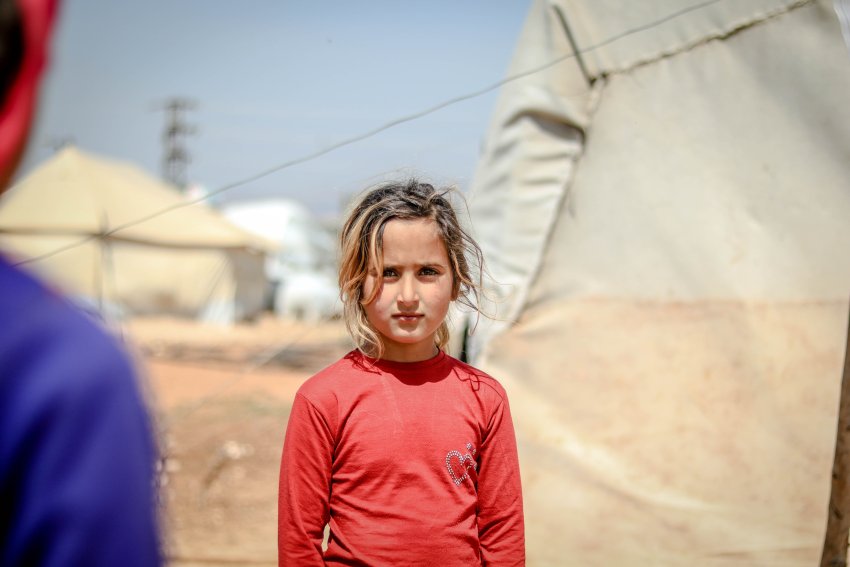
The Russian invasion of the Ukraine, ongoing at the time of writing, has prompted an outflow of Ukrainian refugees, numbering in the millions. The European Union member nations, such as Poland and Hungary, have accepted Ukrainian refugees, and there has been an outpouring of sympathy and solidarity for their plight. This is a humane and considerate response to people experiencing traumatic circumstances.
This sympathy and solidarity stands in stark contrast to the racialised hostility and militarised xenophobia that the EU nations have demonstrations towards nonwhite refugees from war-torn countries in the Global South. Iraqis, Syrians, Yemenis and people from African nations have faced the violent response of fortress Europe. Only last year, at the Polish-Belarus border, Middle Eastern and African refugees were greeted with tear gas, batons and electrified razor wire and pushed into makeshift detention camps.
One of the governments supporting the harsh Poland-EU response to the new arrivals was Kiev. Denouncing the Middle Eastern and African refugees as “invaders”, the Ukrainian authorities, along with Poland, Lithuania and other EU nations, implemented the practices of Fortress Europe. The policies of deterrence and forcible detention of asylum seekers is not new in Europe; the EU nations have turned their immigration and refugee practices into hostile organs of repression.
EU governments have made numerous arrangements with non-EU nations, such as Turkey and states in the Balkans, to detain incoming Middle Eastern and African refugees in isolated and decrepit camps, where refugees are subjected to violence. Greek authorities have imprisoned nonwhite asylum seekers in makeshift camps, and Croatian police have used violent tactics to keep refugees out of their nation.
Why have Ukrainian refugees received such a friendly reception? Let’s listen to the words of Bulgarian Prime Minister, Kiril Petkov. When discussing Ukrainians fleeing from the war-torn circumstances of their home nation, he said that Ukrainians are just like us: “These are not the refugees we are used to; these people are Europeans…These people are intelligent. They are educated people... This is not the refugee wave we have been used to, people we were not sure about their identity, people with unclear pasts, who could have been even terrorists.”
Petkov was hardly alone in expressing these kinds of sentiments. That the Ukrainian refugees are white, educated, middle class, “just like us” was a common theme throughout the corporate-controlled media. Numerous media commentators have emphasised that the Ukrainians constitute the “good” refugees, in contrast to those sinister, nonwhite arrivals from Africa and the Middle East.
While the hospitality extended to Ukrainian refugees is commendable and necessary, it highlights the racist hypocrisies of the EU imperialist states in selectively sympathising with ostensibly white refugees, while dismissing South Asian, African and Middle Eastern refugees as the eternal Other. As Binoy Kampmark writes, the rich nations can now posture as generous benefactors by extending solidarity to the “right type” of refugee.
The EU fortress, mobilised to its fullest extent to expel nonwhite refugees, is now showing a morally respectable face to the influx of “good” Ukrainians. The hypocrisy of this terrible exercise in racialised public relations exposes the cynical manipulation of humanitarian pretexts of refugee policy in the EU — and Australia.
Saturation coverage of Ukrainian families fleeing the Russian invasion are a feature of our TV screens in the West. Funnily enough, Iraqi, Afghan or Yemeni families, fleeing the terrifying destruction caused by US-made bombs, do not receive the same human-interest angle in our corporatised media. The attack on Mariupol hospital was indeed outrageous, but the long track record of US bombings of hospitals, such as in Fallujah, Iraq, or Kunduz in Afghanistan, receive scant coverage because the victims do not conform to our stereotype of the “good” refugee.
There is one claim that we should dispense with from the start; that the Ukrainian refugee outflow is the largest refugee crisis in Europe since the end of WW2. The situation in Ukraine is in flux, certainly, and it is one of the fastest growing crises in Europe. However, we would do well to remember that Europe experienced huge displacements of refugee populations since the 1990s.
The 1989‒91 dismantling of the Soviet Union, in which capitalist austerity programs were implemented in the former Soviet republics, resulted in the displacement of 9 million refugees, fleeing poverty, industrial collapse and fratricidal ethnic warfare. The economic dislocation caused by a return to neoliberal capitalism resulted in, among other things, a severe drop in life expectancy in Russia and an increase in child malnutrition.
The other catastrophic surge in refugee outflows was caused by the breakup of Yugoslavia in the early to mid-1990s. Bosnians fled the fratricidal ethnic conflict in their nation (1992‒95), resulting in the production of at least 2 million refugees. The Bosnians, who are majority Muslim, never acquired the kind of sympathetic coverage we are witnessing today in relation to the Ukrainian refugees.
The Berlin Wall came down in 1989, and the capitalist press hailed the inauguration of a new, united Europe. However, since the early 1990s, European Union nations have constructed new walls, border forces and guards — along with politically motivated hysteria — to expel refugees from the Global South. The Mediterranean Sea is used as a maritime border to prevent the influx of African and Arabic-speaking asylum seekers.
It is high time to end rank hypocrisies, and change our refugee policies, basing them on our common humanity and international law. While we cannot order Moscow to stop its invasion of Ukraine, we can stop our participation in imperialist and predatory wars overseas — the wars which create outflows of refugees in the first place.